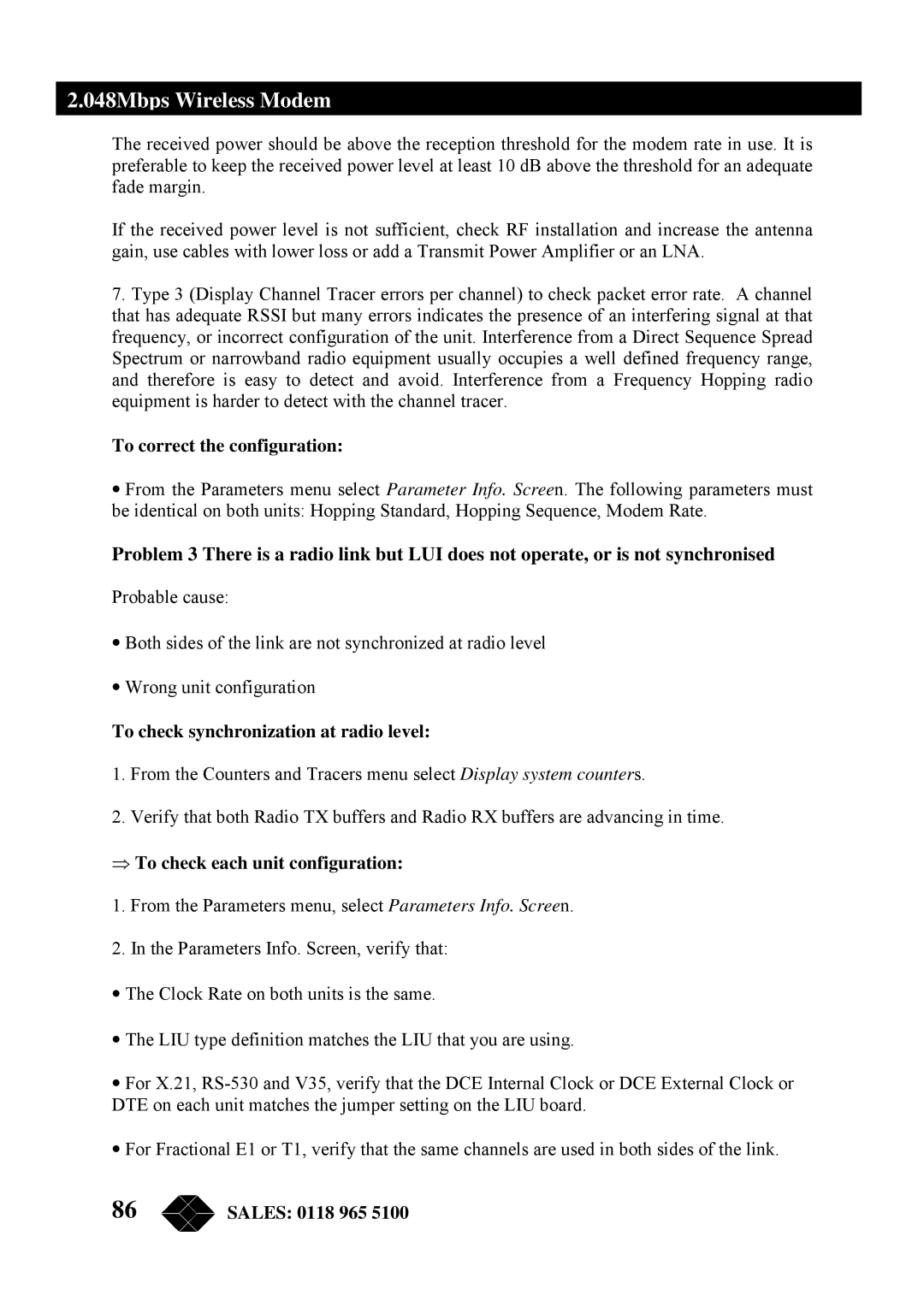
2.048Mbps Wireless Modem
The received power should be above the reception threshold for the modem rate in use. It is preferable to keep the received power level at least 10 dB above the threshold for an adequate fade margin.
If the received power level is not sufficient, check RF installation and increase the antenna gain, use cables with lower loss or add a Transmit Power Amplifier or an LNA.
7.Type 3 (Display Channel Tracer errors per channel) to check packet error rate. A channel that has adequate RSSI but many errors indicates the presence of an interfering signal at that frequency, or incorrect configuration of the unit. Interference from a Direct Sequence Spread Spectrum or narrowband radio equipment usually occupies a well defined frequency range, and therefore is easy to detect and avoid. Interference from a Frequency Hopping radio equipment is harder to detect with the channel tracer.
To correct the configuration:
•From the Parameters menu select Parameter Info. Screen. The following parameters must be identical on both units: Hopping Standard, Hopping Sequence, Modem Rate.
Problem 3 There is a radio link but LUI does not operate, or is not synchronised
Probable cause:
•Both sides of the link are not synchronized at radio level
•Wrong unit configuration
To check synchronization at radio level:
1.From the Counters and Tracers menu select Display system counters.
2.Verify that both Radio TX buffers and Radio RX buffers are advancing in time.
⇒To check each unit configuration:
1.From the Parameters menu, select Parameters Info. Screen.
2.In the Parameters Info. Screen, verify that:
•The Clock Rate on both units is the same.
•The LIU type definition matches the LIU that you are using.
•For X.21,
•For Fractional E1 or T1, verify that the same channels are used in both sides of the link.
86 | SALES: 0118 965 5100 |
